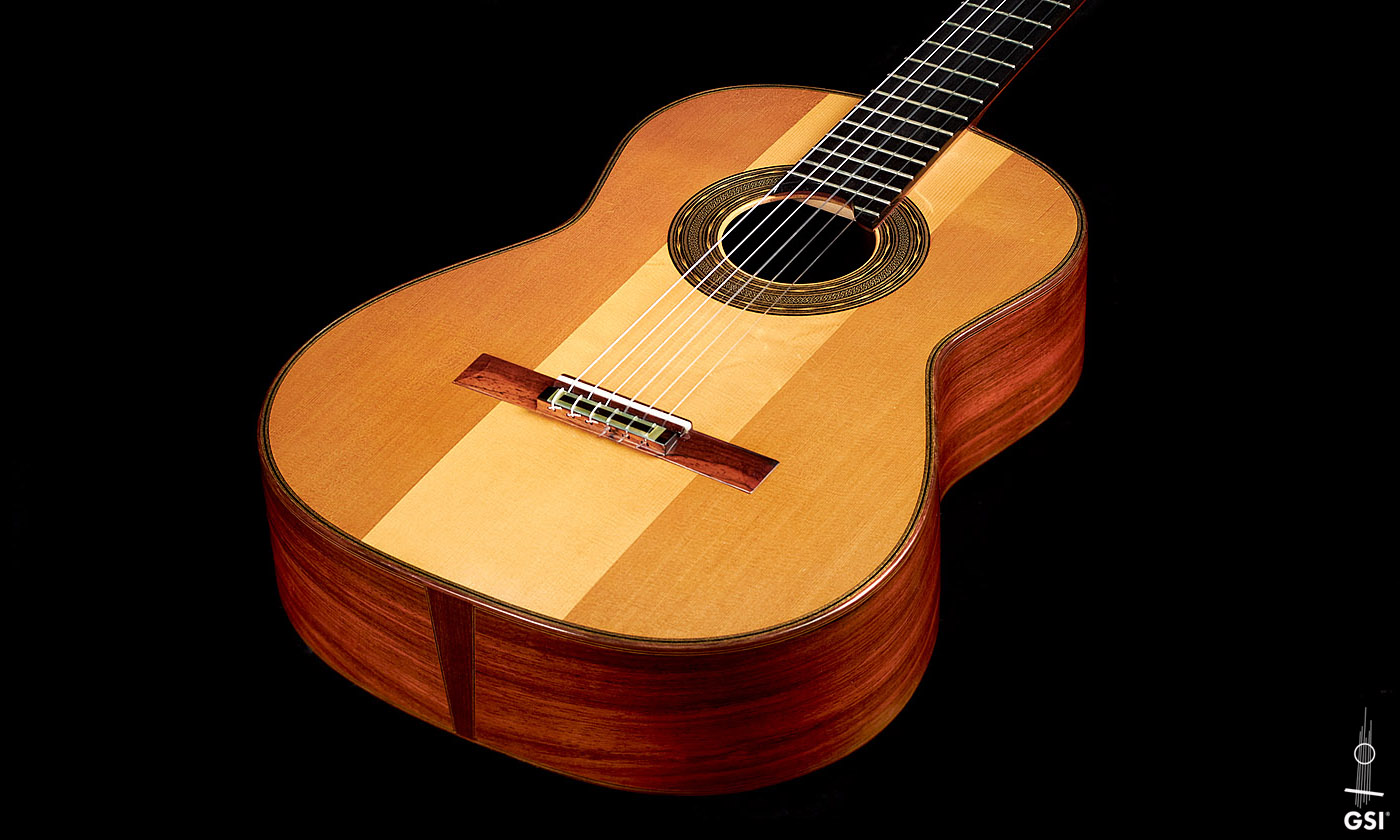The great Spanish guitar maker Antonio de Torres Jurado often made multipiece soundboards. He selected wood he felt had the best qualities rather than finding wood wide enough to book match for a two piece top. How many of us would be willing to do the same?
Here are the specifications and a price list from a tonewood supplier who mostly deals in Engelmann spruce:
MASTER (5A)
Quartersawn within two degrees.
No run out.
Minimum of 20 annual rings/inch.
No color or compression.
Even grain spacing across the entire piece.
Cosmetically perfect.
Very stiff.
Absolutely no defects allowed. These soundboards are perfect.
4A
Quartersawn within five degrees.
No run out
Minimum of 16 annual rings/inch.
Very faint color allowed, no compression
Even grain spacing across entire piece.
Cosmetically pleasing, very close to Master grade.
Very stiff.
No defects allowed.
3A
Quartersawn within 8 degrees.
Very limited run out.
Minimum of 12 annual rings/inch.
Faint color banding allowed, very small amounts of compression wood allowed.
Grain spacing may be slightly less consistent than allowed in a 4A piece.
Cosmetically pleasing, close to 4A.
Stiff.
Small defects allowed outside of the working area.
2A
Quartersawn within 12 degrees.
Limited run out allowed.
Minimum of 8 annual rings/inch.
Medium color allowed, medium compression allowed.
Grain spacing can be less even than is allowed in a 3A piece.
Cosmetically sound.
Not as stiff as 3A but a very usable soundboard.
Small defects allowed outside of the working area.
A GRADE
A Grade soundboards are allowed more defects than the above grades will. These boards are sound and very usable but are less cosmetically pleasing than the higher grades. Most often used as a “paint grade” where visual defects will not be seen.
ENGLEMANN SPRUCE TONEWOOD PRICE SHEET
8 3⁄4” WIDE
Master $85/set
4A $65/set
3A $45/set
2A $20/set
8” WIDE
Master $70/set
4A $55/set
3A $35/set
2A $15/set
7 1/2” WIDE
Master $55/set
4A $35/set
3A $25/set
2A $9/set
6” WIDE
Master $15/set
4A $12/set
3A $10/set
All soundboard sets are 22” long and 3/16” thick.
A little analysis shows you that 2 17 1/2 inch wide - 2 piece - "Mastergrade" tops will cost $170, but that 2 - 4 piece - Mastergrade tops can be created from 3 - 6 inch wide sets for the princely sum of $45. Assuming that the grading is as stated, who would buy a four piece Mastergrade top for slightly more than the price of a two piece "2A" grade top of the same dimensions?
By this same reasoning, 4 - 6 inch wide sets could yield 3 - 4 piece 15 1/2 inch wide Mastergrade tops for about $20 apiece.
Again, who might consider this?

![Thumbs Up [:Y:]](./images/smilies/smiley20.gif)

